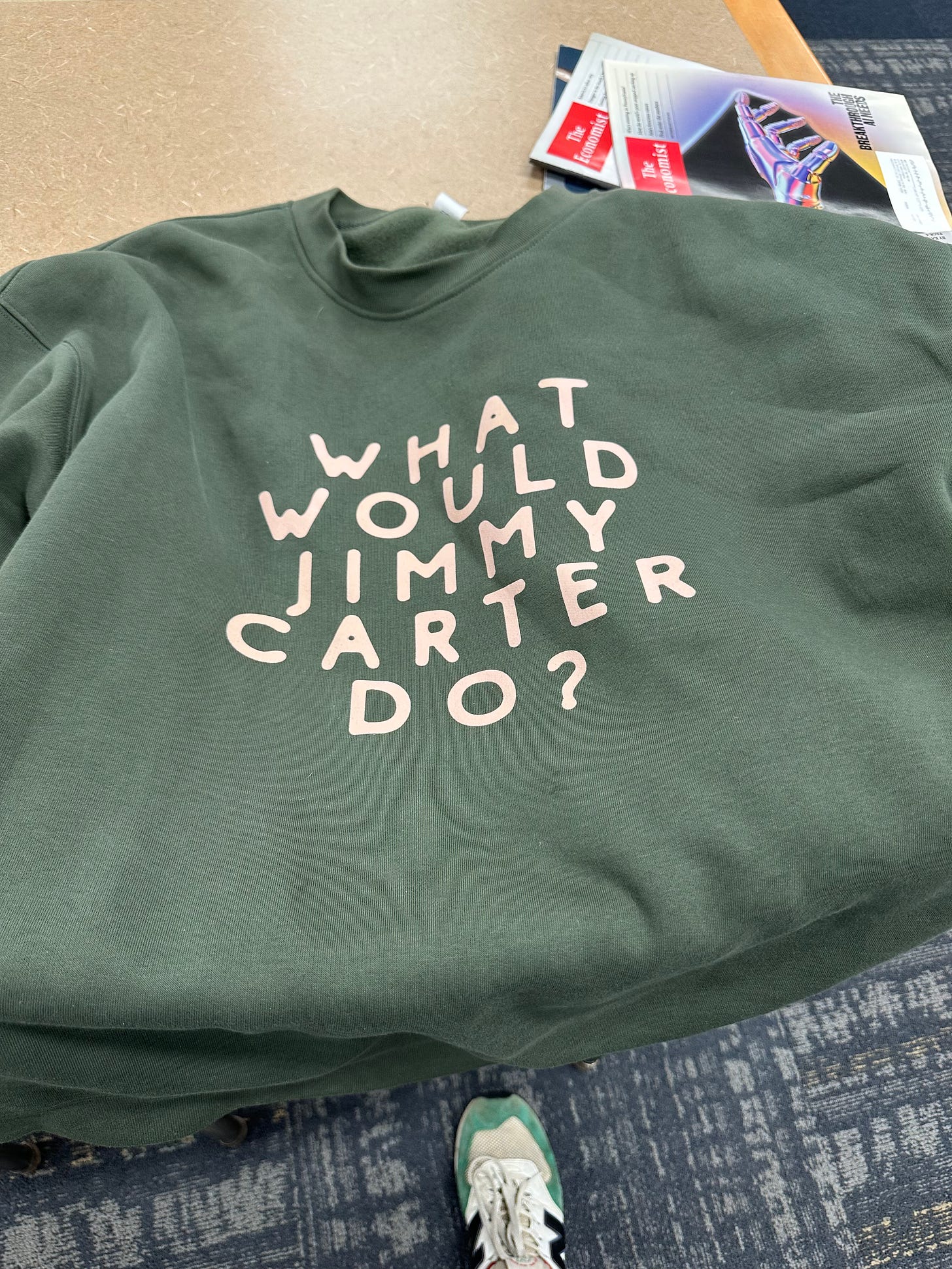How Does Tammany Hall, the New Deal, and Market Research Fit Together?
Hey!
Two stories for you today.
The first one is one I’ve been using in my marketing and branding classes to teach the importance of marketing research.
The second is personal.
So, first…
I grew up in rural northern Georgia.
Two presidents have stronger connections to Georgia than all other presidents.
Jimmy Carter is from Plains.
My part of Georgia is even more country than that.
The second is Franklin Delano Roosevelt, FDR.
FDR is considered a consequential president.
He was president during the Great Depression and most of World War II.
You might also know about “The New Deal”.
The New Deal was FDR’s program of reforms, regulations, projects meant to pull the US out of the depression.
What is interesting about this for my marketing students is this.
FDR didn’t pull these ideas out of thin air.
He actually took many of the ideas from New York City and Tammany Hall.
Tammany Hall was the political machine that ran Manhattan from 1789 to 1967.
In the late 1800’s, industrial capitalism was the dominant system in America. This left people with little security, often isolated, and with significant needs to build a life.
A class of women called “the settlement house workers” took over in these communities, building social connections, helping mothers with their children, and filling in some of the unmet needs.
This system had been going on for 40-50 years by the time the Great Depression came along.
FDR recognized the need for an activist form of government to pull the nation out of the worst of the depression.
But what?
So he went to these settlement house workers because they were in the community and asks, “What do people need?”
Because these women had been keeping statistics, talking to residents, and providing services, these women had answers.
Things such as:
Kindergartens.
Food safety because candy was sometimes painted with lead paint.
Jobs with worker protections.
Over the course of the next few years, FDR passed legislation that introduced:
The National Labor Relations Board to protect workers.
The Public Works Administration that provided jobs, training, and schools…among other things.
Food safety regulations.
What does this mean for you?
Three things:
One, a good idea can come from anywhere.
In fact, some of the best ideas come from outside of your direct circle.
Don’t be afraid to look outside of your industry, friend group, or traditional areas for good ideas.
Two, market research matters.
You can’t assume that you know the answers.
You need to go to the market to figure out what they want.
That’s what always struck me about “The Settlement House” workers example.
FDR’s team went to them because they were closest to the people and could give the administration data, examples, and ideas.
Third, track what matters.
The reason going to “The Settlement House” workers was so effective was because they had the data to back up the research they had and the ideas they were sharing.
Peter Drucker said that what doesn’t get measured doesn’t get improved.
That’s true.
Except you have to make sure you are measuring the right things.
You need a filter.
But you need to measure.
What do you think?
Let me know.
This week I’ve received a few notes about the election results.
Some people know I worked on the 2012 presidential election.
You may not.
Historian Heather Cox Richardson defines a hero as “Someone who does the right thing even if the walls are closing in.”
I think about that quote because I have found that we can move through times in our lives and our history where it is easy to be mean, hateful, or a bully.
We might become cowardly, fearful, or complicit.
We may say or do things we don’t believe in.
Why?
Because it is easier to follow the crowd.
It is simpler to not fight the “conventional wisdom.”
We can be seduced by something that we think is in our best interest.
I’ve fallen prey to this disease.
As I’m certain, you have.
These weren’t the moments that I hope people remember me for.
All I will say about the election is that the end of an election cycle is a great time to reflect on your values.
Who do you want to be?
What matters to you?
What example do you want to set for others?
Then, I want you to remember those.
Timothy Snyder, a historian of tyranny at Yale, says that you should write yourself a letter.
Tell yourself what you value.
What you are willing to fight for.
Put it in an envelope and stick it in a desk drawer.
When you are facing a tough moment, a tough time, or a challenging decision, pull it out and read it.
Why?
So that you remember what matters to you.
You make a conscious decision about who you become.
I think that matters.
I’m here for you.
Dave
Thank you for reading.
You are below the line so I know you dig the newsletter.
Do me a favor and share this with someone that can benefit.



